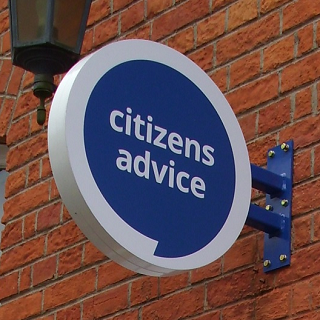 The ban on evictions comes to an end this weekend, and new figures from Citizens Advice suggest that concern is building amongst renters about the possibility of losing their home.
The ban on evictions comes to an end this weekend, and new figures from Citizens Advice suggest that concern is building amongst renters about the possibility of losing their home.
-
The number of people seeking help from Citizens Advice about issues to do with private rented properties increased by 43% between summer (June to August) 2020 and the same period last year.
-
Over the same period, the number of visits to Citizens Advice’s webpage “Dealing with Rent Arrears” more than doubled year on year.
-
Previous research from the charity has suggested that over a million people have fallen behind on their rent due to Covid-19.
Amy Hughes, Housing Expert at Citizens Advice, shares the top five ‘need-to-knows’ for renters* in England worried about staying in their home.
Find out where you are in the process
“If your landlord wants to evict you from your privately rented home there are three stages they’ll have to go through. First, they’ll need to serve you with a notice. When this expires, they need to go to court to get a possession order, and finally apply for a bailiff visit to evict you. It’s really important to know where you are in that process.
“If your landlord has not yet given you a formal notice then you won’t be evicted for many months. If your landlord has already got a possession order and applied for a bailiff date, you might be evicted with 14 days notice.”
If you haven’t received notice yet but are worried about eviction
“If you haven’t yet been given notice, but are worried about the possibility, talk to your landlord. Explain the effect that coronavirus has had on your household and income. Ask if they’ll accept reduced payments, or let you pay back arrears at a rate you can afford.
“Both the government and the landlords’ body the NRLA have asked landlords to be sympathetic to tenants affected by the pandemic.
“You should also make sure you’re receiving all the benefits you might be entitled to.”
If you’ve received a notice
“The rules on the notice your landlord must give have changed — it may now be up to six months depending on when the notice was served.
“The notice must also be in a specific form, so make sure you have a copy and get it checked. Your local Citizens Advice is one place that can help, either in person or via email. If the landlord hasn’t followed other rules during your tenancy this might also mean that the notice is invalid.
“Your landlord can only make a claim to court after the notice ends. You don’t need to leave by this date, but going to court might mean costs are added to your debt if the notice is valid.”
If your notice is expiring and you’re due to go to court
“After 20 September, courts will start hearings again. If your landlord started the claim after 3 August, you’ll be given a court date automatically, otherwise the landlord will need to serve a ‘reactivation notice’ to restart proceedings.
“Return your defence form if you want the court to consider your evidence or allow you extra time in the property. Supply any evidence of information which you gave your landlord about the effect of Covid-19 on your household and of any payments you’ve made.
“The court will look at the information provided by you and the landlord and decide whether to make an order for possession. In some cases you might be able to stay if you can agree to affordable repayments, but the court has no discretion to allow you to stay if you’ve had a valid Section 21 notice - so-called ‘no fault eviction’.
“If the possession order is granted, it will usually ask you to leave within 2 to 6 weeks.”
If you’ve had a possession order and are facing eviction
“If the court had already decided your case before the eviction ban started (27 March 2020), you may be given 14 days notice after 20th September that bailiffs will carry out an eviction.
“You should seek urgent advice - from Citizens Advice or another housing charity - about whether there’s any way to prevent or delay the eviction, or about finding alternative accommodation.”
*The advice applies to tenants in private rented accommodation and does not include lodgers.
Even if people are able to follow this advice, Citizens Advice fears that many renters will struggle with arrears built up during the pandemic.
The charity, in a coalition that includes the landlord body the NRLA and housing charities, is calling for direct financial support for people behind on their rent because of Covid-19 - either through grants or government-backed interest-free loans. Citizens Advice is also calling for reforms that give judges more discretion to allow tenants to stay in their homes.
Dame Gillian Guy, Chief Executive of Citizens Advice, said:
“Neither renters nor landlords can afford to be saddled with long-term arrears as a result of coronavirus.
“The government must urgently consider direct financial support to help renters clear their debts and stay in their homes, and so make good its promise that no renter will be evicted because of coronavirus.”
Published: Friday 18 September 2020
Notes
-
In June-August 2020, 21,845 people sought help with an issue on private sector rented properties. This is a 43% increase from June-August 2019 when 15,240 people sought help with these issues.
-
In June-August 2020, there were 17,197 pageviews of the page “Dealing with Rent Arrears”. This is a 104% increase on June-August 2019 when there were 8,447 pageviews of this page.
-
At the end of August, a coalition - including Citizens Advice, Shelter, the National Residential Landlords Association, ARLA Propertymark, Crisis and Generation Rent - called for a short-term package of emergency grants and loans worth £270 million to help renters who have lost out on income or been furloughed as a result of the pandemic.
-
Citizens Advice is made up of the national charity Citizens Advice; the network of independent local Citizens Advice charities across England and Wales; the Citizens Advice consumer service; and the Witness Service.
-
Our network of charities offers impartial advice online and over the phone, for free - find out how to get in touch




